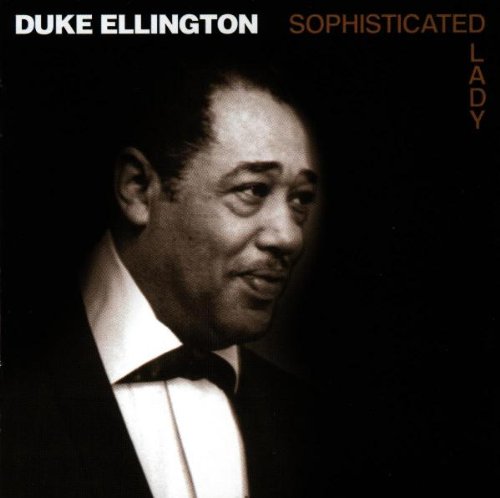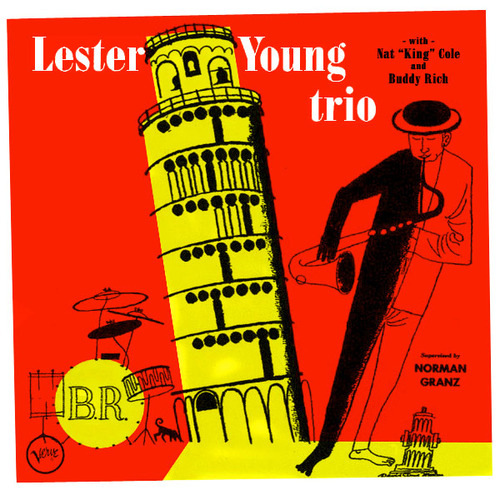Recent listening, current
Archived listening, 2013-2016
Showing posts with label 1946. Show all posts
Showing posts with label 1946. Show all posts
Saturday, March 15, 2014
190. Erroll Garner / Jazz 'Round Midnight (1991)
Compilations from Jazz 'Round Midnight are usually good, and while this one is no exception, it tends to be monopolized by downtempo ballads. Across 16 tracks, listeners hear Garner's solo and trio recordings from the mid '40s and '50s. You get the basic idea -- contrasts of soft with loud, twinkling arpeggios from the right hand, chord tracing from the left. But the towering crescendos and dizzying excitement that so frequently come up when people talk about Garner seem missing. Things heat up a little in "I've Got The World On A String" and especially "Part Time Blues". Garner's punchy rhythmic accents and huge, bluesy blocks remind me of why I love the piano of Duke Ellington and Oscar Peterson. While I appreciate them for the variety, I want more. None of this, however, should detract from the stately beauty of "I Can't Get Started" or "Misty." As Garner is one of those pianists who has been anthologized and repackaged a thousand times, this installment could be worth passing over. But in a lot of other ways it's a good one for the car, for after a hard day, or for audiences that are unlikely to gripe about the track sequence as I have. I almost forgot to mention the last track, a 10:42 solo take of "Over the Rainbow." It leaves me spellbound and feeling guilty for taking issue with any of the above.
Labels:
1945,
1946,
1949,
1954,
1955,
1957,
1991,
compilation,
erroll garner,
gitanes,
jazz round midnight,
piano,
piano trio,
polygram,
trio,
verve
Friday, February 21, 2014
187. The Complete Jazz at the Philharmonic on Verve, 1944-1949 (1998)
After being evicted, in a word, from Los Angeles' Philharmonic Auditorium in 1946, Norman Granz retained his revue's catchy name and took the show on the road. For the next several years, various incarnations of "Jazz at the Philharmonic" played for audiences across Europe and North America. The historically important concerts were recorded and released, pimples and all. In fact, they represent some of the first commercial "live" albums ever made. Some were broadcasted on big radio stations, and extensive touring allowed audiences in isolated locales to see performers who never would have reached them. A notable feature of the Philharmonic lineups was that they juxtaposed veterans of the swing era with younger players of bebop. Rosters included Slim Gaillard, Lester Young, Coleman Hawkins, Charlie Parker, Roy Eldridge, Illinois Jacquet, Billie Holiday, Gene Krupa, Hank Jones, Ray Brown.... too many to list them all here. These styles were often in stiff opposition, and their players unlikely to play together. Stories abound of the politics wrought by the odd marriage of styles. I've read critics who fault Granz for "forcing" jams and contests between players, but most listeners enjoy the results. I'm with the latter camp, and I rank these records among the most essential of all.
Labels:
1944,
1945,
1946,
1947,
1948,
1949,
1998,
bebop,
bop,
compilation,
live,
norman granz,
swing,
the complete jazz at the philharmonic on verve,
verve,
vocal,
vocalist
Thursday, February 20, 2014
186. Duke Ellington / Sophisticated Lady (1996)
Sophisticated Lady is another cull from the legendary RCA sessions. It's a good one. Selections from the period also appear on the three-disc set, Never No Lament. But that, or Bluebird's Blanton-Webster box that spawned them all, are going to make one hell of a dent in your bankroll. On the other hand, you can buy Sophisticated Lady over at Amazon for the princely sum of one penny. I know, you have enough Ellington at home and will forgo this stage in the endless saga of repackaged jazz music. Still, a penny? I'll wait here while you go and get one. Back already? When it arrives in the mail, you'll appreciate the diversity of material and engaging sequence. Duke's best pieces are present, and there is a fair mixture of instrumental and vocal music. With Blanton at the wheel, it swings like a hammock. There is magic from start to finish. Like Kay Davis' electrifying vocal that makes "Mood Indigo," followed by Webster's whispering tenor. Tricky Sam Nanton's trombone should get you "In a Sentimental Mood," but beware the three sirens telling you "It Don't Mean a Thing if it ain't Got that Swing" (Joya Sherrill, Kay Davis, Marie Ellingon). The affair heats up to a frenzy courtesy of Jimmy B. Then Ray Nance sings "Just Squeeze Me," Al Hibbler chimes in on "Solitude"... Nothing to shake a stick at here, this is real music. This is what it all means. This is "it."
Labels:
1940,
1941,
1942,
1945,
1946,
1996,
al hibbler,
ben webster,
big band,
compilation,
duke ellington,
jimmy blanton,
joya sherrill,
kay davis,
ray nance,
rca,
swing,
victor,
vocal,
vocalist
Friday, December 6, 2013
155. Earl Bostic / Flamingo (2002)
Flamingo is a double disc compilation by the UK's Proper Records label, covering 1944 to 1951. The audio quality is very good. These groups are like many of the transitional orchestras of the 40s and early 50s. They feature veterans alongside torchbearers from swing to bop and beyond. In the early sides, we hear Bostic with Rex Harris, Cozy Cole, Don Byas, Tiny Grimes, and Lionel Hampton. Later, in his stripped down R&B orchestra, we hear a sampling of Jimmy Cobb, Wilbur Campbell, and Jaki Byard. Listen for the transition from gut busting alto to what became Bostic's trademark technique. In the 1949 sextet, tracks like "Filibuster" show repeated riffing with huge tone, but also a nimble fingered aptitude for clean, double-time runs through the scales, colored here and there with reed buzz. The lovely "Serenade" (Gene Redd on vibes) has a similar feel. Like Ben Webster, Bostic could play with arresting power, or sublime gentleness. "Flamingo," probably his best known track, has become the archetypal rendition, although it isn't much different in structure or appeal than other sides recorded by the group. I like the later sides best, but the early ones are priceless, too.
Labels:
1944,
1945,
1946,
1947,
1949,
1950,
1951,
2002,
alto,
alto saxophone,
big band,
earl bostic,
flamingo,
proper,
rhythm and blues,
septet,
sextet,
swing
Wednesday, March 27, 2013
63. Lester Young Trio with Nat King Cole and Buddy Rich (1946)
This is Lester Young right after the war, 1946, and leading a piano trio with Nat King Cole and Buddy Rich. It's the comfort food of jazz, and very satisfying. Young's lines are the epitome of their form, sweetly imagined, and sound as much like lines in a conversation as they do lines of melody on a saxophone. It's a good example of Young's casual, easy swinging style, and with just two other guys in the group, it's everywhere on the record. Nat's left hand does somersaults in playful runs, inventive patterns and good rhythmic chording, making the idea of a bass player obviously redundant. Cole interacts with Lester a lot. The pair is constantly trading ideas and listening to one another intently. Rich mostly uses the brushes but makes a relaxed vibe, keeping tempos taut and encouraging the soloists. There's a lot to choose from. The CD issue has two versions of "I Cover the Waterfront" and a handful of outtakes at the end of the disc which are nice.
Subscribe to:
Posts (Atom)




